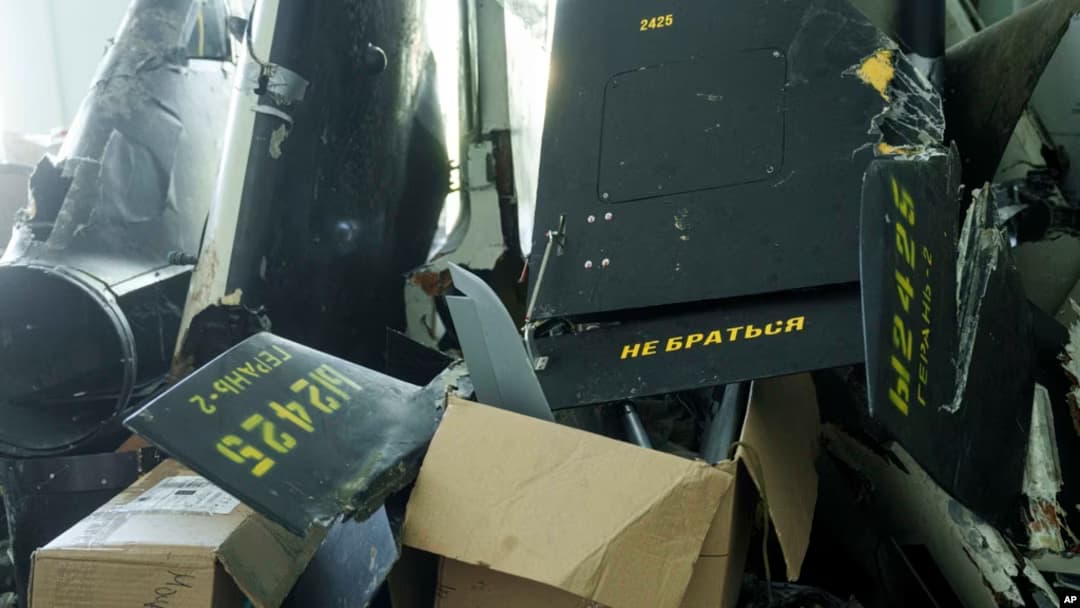We're loading the full news article for you. This includes the article content, images, author information, and related articles.
A recruitment scheme promising education and jobs in Russia is placing young African women, including Kenyans, in hazardous military drone production facilities, prompting international human rights concerns and a formal investigation by the South African government.

Hundreds of young women from across Africa, including at least 14 from Kenya, have been recruited to work in a Russian military drone factory under what investigative reports describe as deceptive and exploitative conditions. The scheme, known as the "Alabuga Start" programme, targets women aged 18 to 22, luring them with promises of fully funded training, high salaries, and professional jobs in fields like hospitality and logistics. However, upon arrival in Russia's Tatarstan region, many are channelled into assembling Iranian-designed Shahed-136 attack drones, which are used by the Russian military in its war against Ukraine.
Testimonies from recruits reveal a stark contrast between what was advertised and the reality on the ground. Adau, a 23-year-old from South Sudan, told journalists she was taken to a drone factory on her first day of work, despite having signed up for a technical role. Participants report working long hours under constant surveillance, facing punitive fines for minor infractions, and having significant deductions for accommodation, transport, and language classes taken from their salaries. Some women have described health issues, including skin peeling, from working with caustic chemicals without adequate protection.
The operation is based in the Alabuga Special Economic Zone (SEZ), a major industrial hub that has become central to Russia's war economy. Facing a severe labour shortage due to military mobilisation and emigration, Russia has increasingly turned to foreign workers to staff its defence industry. The Alabuga Start programme, launched in 2022, has actively recruited from over 40 countries, with a significant focus on Africa, including Kenya, Uganda, Nigeria, and South Sudan. Slick social media campaigns, often using local influencers, promote the programme as a life-changing opportunity for ambitious young women.
According to a report by one of Kenya's leading newspapers, at least 14 Kenyan women have been recruited into the programme. An investigation by The Associated Press also confirmed the presence of Kenyans at the facility. The Kenyan government has reportedly launched a probe into the trafficking of its citizens to Russia for forced military-related roles. This follows the case of a Kenyan athlete who alleged he was tricked into fighting on the front lines after travelling to Russia. In a statement on June 3, 2025, Kenya's then-Labor Minister, Alfred Mutua, stated that the government had no official employment programmes with Russia, while the Russian embassy in Nairobi has denied the accusations of exploitation.
The recruitment drive has sparked international alarm. In August 2025, the South African government launched a formal investigation after local influencers promoted the scheme, warning its citizens of the risk of human trafficking and exploitation. The Global Initiative against Transnational Organized Crime (GI-TOC), in a May 2025 report, stated that the Alabuga Start programme shows signs of human trafficking and exploitative fraud. Interpol has also reportedly begun an investigation into the programme for human trafficking.
The factory itself is a high-risk environment. In April 2024, a Ukrainian drone strike targeted the Alabuga SEZ, injuring several foreign workers and highlighting the danger recruits are placed in without their informed consent. Testimonies reveal that after one attack, management confiscated workers' passports to prevent them from leaving. Human rights organisations have documented a broader pattern of abuses against migrant workers in Russia, who often have few avenues for legal redress. The Alabuga programme exploits the high unemployment rates in many African nations, offering salaries that, while low by Russian standards, are attractive to young jobseekers. The scheme represents a clear intersection of deceptive recruitment, labour exploitation, and Russia's efforts to sustain its war machine, drawing vulnerable young Africans into a distant conflict under false pretences.
Keep the conversation in one place—threads here stay linked to the story and in the forums.
Sign in to start a discussion
Start a conversation about this story and keep it linked here.
Other hot threads
E-sports and Gaming Community in Kenya
Active 9 months ago
The Role of Technology in Modern Agriculture (AgriTech)
Active 9 months ago
Popular Recreational Activities Across Counties
Active 9 months ago
Investing in Youth Sports Development Programs
Active 9 months ago